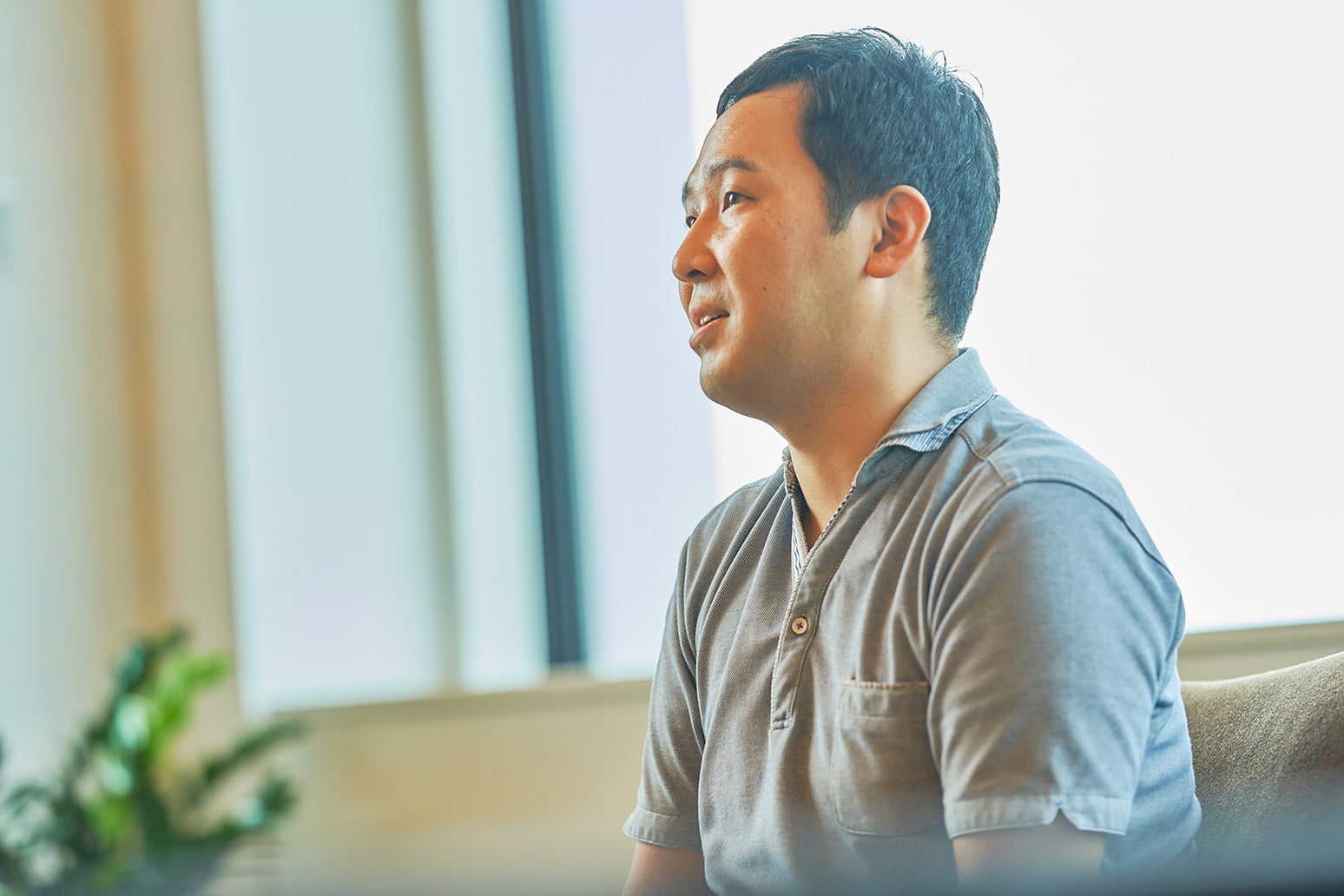Voices of Developers
Munenori Hirakawa
Managing Director
A team that I overcame tough challenges
with, and creating our company culture
- What is your role and mission in India?
I am currently responsible for the engineering teams that support the backend and platforms behind the payment system. I originally was a backend engineer at Yahoo! JAPAN, working on payment systems and such. I joined here as one of the engineers during the startup phase.
As you can probably tell from that short anecdote, the most attractive thing back then was the challenge of developing a service from scratch. The launch date was set, and I recall that all team members were aware that we had no time to waste because it started out of the blue.
Every day, everyone gathered in front of the whiteboard to discuss what needed to be created, how to create it, and so on, and that's how we managed to make it to launch. It was a wonderful experience, being able to overcome the pressure of a short product release deadline as a team.
This time, I will be responsible for the PayPay India in India for Day 1 again and will be involved in the operation of the center while residing there. I believe that one of my major responsibilities is to prepare the best environment for engineers to work.
Among other things, the reason why I believe this will be a great challenge is the fact that we only offer our services in Japan. Our members in India do not have the opportunity to use our products in their daily lives. In such a situation, how can we make them feel familiar with our products and take responsibility for them? I believe it will be an important mission for me to find solutions to this problem and to play a role as a bridge between the two.

- Why a development center in India?
What do you want to achieve there?
In the four years since we launched our service, we have grown rapidly to have more than 50 million users, with one out of every two smartphone users in Japan using our service. And we have continuously strengthened our development system to keep pace with this growth.
Around Day 1, we started development with mainly Japanese engineers from Yahoo Japan and Softbank, and Paytm's India and Canada-based engineers. What I realized was that I had many experiences developing in a Japanese-only environment, but when I worked with a more diverse group of people, I realized that we could bring in ideas and new ways of doing things that I had never noticed before. We all decided that this would be an important part of our development organization.
Since then, we have continued to hire from both Japan and overseas, and now 70% of our team members are from overseas, making us a team with a rich international flavor.
However, there are many challenges for these members to come to Japan from overseas.
They have to relocate with their families to an unfamiliar country, and on top of that, they have to adjust to a new environment and work at a new company.
I realized that they all came to Japan with various burdens and risks.
Also, because this is a rapidly growing service, we thought it was necessary to strengthen our engineering team with a different approach to better respond to user needs, so we decided to open a development center overseas.
It was not too difficult to decide where to locate the center.
Of course, we compared countries around the world from various perspectives, but no other country had such a wide range of conditions, including a large number of IT personnel, a high level of IT education, English as the common language and less time difference with Japan.
We are planning the PayPay India to be responsible for the development and operation of some of our diverse services. The key point here is that this is not a typical offshore development project.While respecting the Indian culture, this is a horizontal expansion of the current development team at our Japan headquarters. Therefore, we are seeking the same high level of quality in a similar development process.Since many unicorn companies have been born in India recently, we think it will be fun to propose new product ideas from the PayPay India that are not yet available in Japan, and we would like to make it happen.

- What do you value about working for our company?
What attracts you to our company?
There is chaos in here in a good way.
I really can't imagine what we will be doing in a couple of months, and things are moving at a rapid pace, with changes for the better happening on a daily basis. For developers, new projects and other activities keep coming up, with many ideas and opinions being shared. It can get rather confusing at times.
“Ego is not welcome, Communication is necessary”
These words are important to me, all the more so because of our environment.
When creating a good product, it shouldn't be just one person's idea. Rather, it's important to listen to the voices of users and team members who I work with, compliment good ideas, and express my opinions if I have any. I think everyone values that kind of communication and process.
Also, as for the attraction, in Japan I experienced many different phases in a short period of time: the phase of creating 1 from 0, growing it to 10, and expanding it to 100... I learned something completely different from each of them. The culture is deeply rooted in our team. For example, we update our mobile apps more than 50 times a year, and we pursue the realization of user-first services on a daily basis. I think this sense of speed is one of the things you can only experience at our company. We are also particular about the level of technology when hiring, and I think it can be said that each individual has a high level of professionalism and a strong desire to help others who are working hard toward the same vision.
- What kind of company do you want PayPay India to be?
I would like the users to view us as a company that creates very convenient services and products.
It is actually very difficult to be considered convenient. Engineers first need to be solid with the basics, like stability, security and scaling, and then everyone can use a product without worry. Only with this foundation can people notice the added value of convenience.
Rapidly providing new value to users by taking care of the basics - it's a simple idea, but I want to make great a company that cherishes that.
For engineers, we are still in a phase where we need to create a lot of new value, so I want to create an environment where we can regularly take on such technical challenges.



